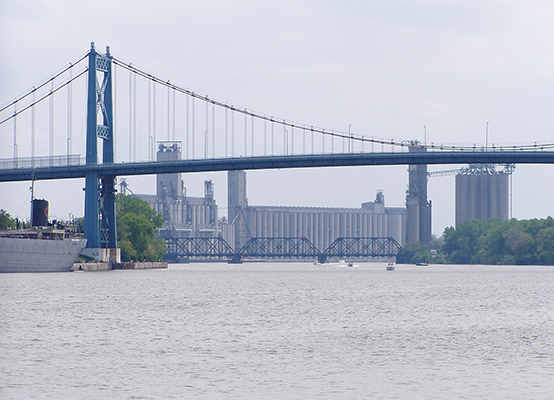This article by Daniel McGraw appeared in The American Conservative, February 28th, 2019.
TOLEDO, Ohio—About a month ago on a snowy afternoon, driving over the spindly 90-year-old Anthony Wayne Bridge, I couldn’t help but notice how this city seemed stuck in neutral. Behind me was the huge Toledo Refinery, a 280-acre gasoline processing plant, but set in a neighborhood where the houses appeared older and less functional than the industrial site.
On the west side of the Maumee River were neighborhoods with wide boulevards with little traffic just south of downtown, filled with vacant lots, inner-city convenience stores, and grandiose churches from a bygone era. One of those churches was St. Anthony’s, a Catholic church that was once home to Polish immigrants, a gothic structure of brick topped by a 250-foot steeple and built in 1894, but closed since 2005.
Then the radio reminded me why I was in Toledo. I was reporting on the environmental movement in this city that was trying to save the Great Lake it sits upon. “The Lake Erie Bill of Rights” was a charter amendment that would be put on the ballot and could bestow upon this body of water the legal designation of “personhood.” That’s right, Toledo wanted to radically change the legality of the natural environment, basically making this 10,000 square-mile lake it sits upon its child, with the citizens of the Glass City the lake’s legal guardian. In essence, the parents then could sue on behalf of its child if the lake was bullied with polluters.
Obviously, there was pushback on this crazy idea from the agricultural and business community. “What did these groups put in their bill of rights?” the radio ad asked me. “The right to hurt local farmers, the right to hurt small businesses, the right to drive up our food costs.” MORE…

